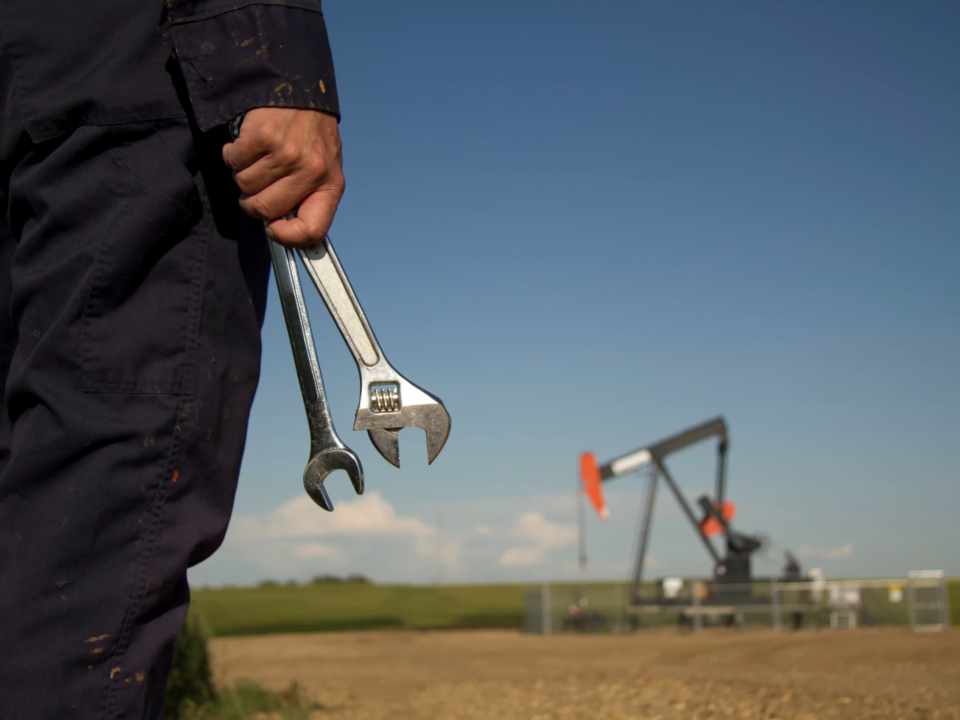THE ADVANTAGES OF A BIG DATA STARTUP IN THE OIL AND GAS INDUSTRY
THE STARTUP INFLUENCE IN OIL AND GAS INDUSTRY AND THE SHIFT TO CLOUD COMPUTING.
Oil and gas “is one of the most IT-dependent industries,” said Chris Niven, research director for IDC Energy Insights. This IT push in America’s shale fields has advanced more rapidly than in any other segment of the energy industry. Shale 2.0 will ultimately yield break-even costs of $5–$20 per barrel — in the same range as Saudi Arabia’s vaunted low-cost fields and, as the Wall Street Journal recently reported, America can perhaps become the world’s biggest oil exporter in the coming years. The confluence of technological maturity and market opportunity is ideally aligned for the upcoming pivot to data-centric Shale 2.0.
Sure, the big guns are already knee deep in the race, like Splunk, Microsoft, and Teradata driving the supermajors. But tech-savvy startups are becoming increasingly valuable to the mid-major oil companies in large because of their agile infrastructure that captures and reads data more quickly.
THE STARTUP INFLUENCE
Oil and gas companies are seeing an influx of these savvy startups disrupting the industry much like they did in manufacturing, financial services, retail, etc. The spry startups mean extremely quick integration with the ability to capture, understand and actionize big data for superior business operations.
Startups are known for bootstrapping and having a hustle mentality to get things done on a small budget. They’re also known for being huge economic drivers for innovation. In oil and gas, the startup mindset will become increasingly important as these companies seek reliable and consistent ways to maximize cash flow by way of big data analysis.
Shale 2.0 will rely heavily on the startup mentality to run efficient operation. Shiva Rajagopalan, founder and CEO of Seven Lakes Technologies, advises that every member of the team be versatile:
“Startups place a large focus on resilient team members from the fruition of their company, but they also need to focus on utility players who can be thrown to pitch a PR article just as quickly as a financial value brief for enterprise level sale. These players then continue to grow with the company and are groomed to function in specific roles as the team grows.”
BIG DATA STARTUPS ARE MAKING THEIR MARK IN THE OIL AND GAS INDUSTRY BY BEING QUICK TO INNOVATE.
A recent PwC report found a clear correlation between innovation and success in growing revenues across industries. In breakthrough innovation and growth, they report that over the past three years, the most innovative 20% in the study grew at a rate 16% higher than the least innovative.
And in the span of only five years, the top innovators forecast that their rate of growth will further increase to almost double the global average, and over three times higher than the least innovative.
“By leveraging innovations like smart data analytics, big oil has the potential to save billions,” says Rajagopalan. “Companies will save by having data that’s accessible throughout an organization, not siloed by departments. They can leverage this information to pump by exception and in return, see a reduction in downtime.”
To learn more about how Seven Lakes is disrupting the Oil and Gas industry, check out this article published in CIO.
Oil and gas companies are seeing an influx of these savvy startups disrupting the industry much like they did in manufacturing, financial services, retail, etc. The spry startups mean extremely quick integration with the ability to capture, understand and actionize big data with cloud computing for superior business operations.
Startups are known for bootstrapping and having a hustle mentality to get things done on a small budget. They’re also known for being huge economic drivers for innovation. In oil and gas, the startup mindset will become increasingly important as these companies seek reliable and consistent ways to maximize cash flow by way of big data analysis.
Shale 2.0 will rely heavily on the startup mentality to run efficient operation. Shiva Rajagopalan, founder and CEO of Seven Lakes Technologies, advises that every member of the team be versatile:
“Startups place a large focus on resilient team members from the fruition of their company, but they also need to focus on utility players who can be thrown to pitch a PR article just as quickly as a financial value brief for enterprise level sale. These players then continue to grow with the company and are groomed to function in specific roles as the team grows.”
THE MOST INFLUENTIAL WAY BIG DATA STARTUPS ARE INFLUENCING THE OIL AND GAS INDUSTRY IS THROUGH CLOUD COMPUTING.
A forecast from the UK-based Oil and Gas Council, argues that the oil and gas industry stands to benefit particularly from cloud computing. Using a hybrid version of the technology that combines software as a service (public cloud) and software infrastructure as a service (private cloud) could not only bring IT costs down, but could also improve the way the business is managed.
The hesitation oil and gas companies have in adopting cloud technologies has to do with data security, access, and control. If something was to happen to their goldmine of data, oil and gas companies would have had no way to measure production and run mission critical parts of their business. That means there is a perceived risk associated with moving a multi-billion dollar business over to the cloud for the first time. A lot has changed for both the oil and gas industry and cloud computing technologies in the recent years.
“Cloud computing is far more sophisticated, proven and secure than ever before. The growing standard across nearly every global enterprise – from banking to e-commerce, to the government – cloud computing is the competitive edge oil and gas companies need to optimize production,” says Rajagopalan.
To learn more about how Seven Lakes is disrupting the Oil and Gas industry, check out this article published in CIO.




